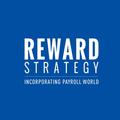The business case for wellbeing
 Reward Strategy
Reward StrategyThe compelling commercial rationale behind workplace wellbeing programmes

The debate around workplace wellbeing has evolved far beyond moral obligation. New research from Towergate Employee Benefits demonstrates that supporting employee health and wellbeing delivers measurable business advantages, providing reward leaders with compelling evidence for strategic investment.
The study reveals a striking alignment between doing good and doing well, with employers recognising that wellbeing support generates tangible returns across multiple business metrics. This data-driven approach is reshaping how organisations view the ROI of their people investments.
The Commercial Impact
The research identifies eight key business advantages from robust health and wellbeing programmes. Topping the list are increased employee loyalty (35%), improved retention (35%), and enhanced productivity (34%) – outcomes that directly impact the bottom line.
These findings are particularly significant given current talent challenges, where recruiting and retaining quality staff has become increasingly difficult. The data suggests wellbeing support functions as both a defensive strategy against attrition and an offensive tool for talent acquisition.
Debra Clark, head of wellbeing at Towergate Employee Benefits, emphasises: "It is great that employers recognise that supporting the health and wellbeing of staff has a much wider impact than just on the employees themselves."
While 35% of employers cited "doing the right thing" as motivation, the research reveals that moral imperatives alone don’t drive wellbeing investment. Instead, organisations increasingly recognise the strategic value of comprehensive support systems.
Business benefits extend across the employee lifecycle. Enhanced engagement (34%) and reduced absenteeism (31%) contribute to operational efficiency, while cultural alignment (31%) and recruitment support (24%) strengthen organisational cohesion and talent pipelines.
This multifaceted impact suggests wellbeing programmes function as integrated business solutions rather than standalone benefits, addressing multiple workforce challenges simultaneously.
Modern Workplace Solutions
The research comes at a critical time for UK employers navigating unprecedented complexities. Rising employment costs, hybrid working models, and evolving employee expectations have created significant people management challenges.
Clark notes: "Employers are facing so many challenges in the current business climate. Recruiting talent has become a constant battle and then retaining that talent is equally difficult. With new hybrid working models it is harder to spot issues leading to absenteeism."
Wellbeing support provides a unifying solution that complements other retention strategies including competitive remuneration, career progression opportunities, and supportive culture initiatives.
Building the Business Case
For reward professionals seeking to justify wellbeing investments, the research provides concrete evidence of commercial returns. Clark explains: "When the board sees the positive impact to the company when staff are looked after, they’re more likely to invest in it."
This evidence-based approach is crucial when every spending decision faces scrutiny. The research demonstrates that wellbeing programmes generate returns across multiple metrics simultaneously, offering better value than single-purpose interventions.
Implementation Excellence
The research highlights the importance of strategic implementation. Clark advises organisations not seeing direct business advantages to "seek advice on how the support can benefit the business too," suggesting that programme design and execution are critical to success.
As the war for talent intensifies, comprehensive wellbeing support is becoming a competitive differentiator. Clark concludes: "What is clear is that when employees are looked after, everyone benefits" – encapsulating the fundamental shift from viewing wellbeing as cost to recognising it as strategic investment.
